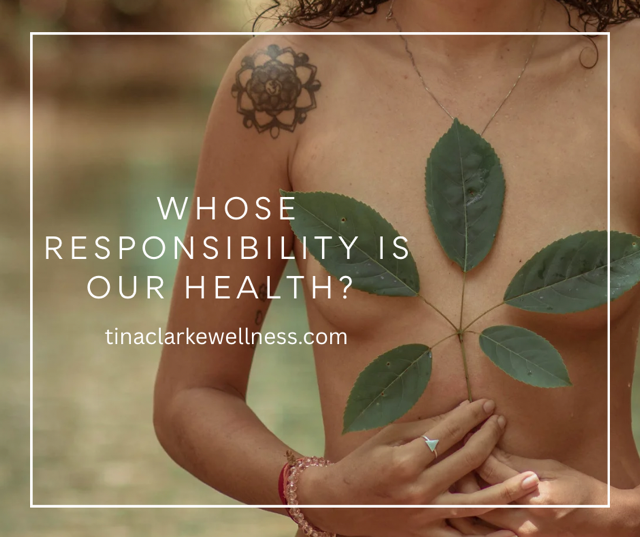
03 Jun Whose Responsibility is Our Health?
I’ve been reflecting on how often we tolerate unpleasant symptoms, brushing them off as unfixable or simply part of life. Our healthcare systems are brilliant in a crisis, yet often fail to address quality-of-life issues. So, who’s responsible for how well we actually feel?
The Gap Between Surviving and Thriving
Let me give a personal example. I’m nearly 11 years post-double lung transplant. Thanks to modern medicine, I’ve gained more time—but at a cost. Lifelong immunosuppressants come with side effects like brain fog and fatigue. Now at 46 and going through perimenopause, the symptom overlap grows confusing.
When I raise these issues with my transplant team, they listen politely, jot down notes, and move on—no tests, no suggestions, no solutions. Their parting words are that I’m “doing great,” as if that should be enough.
Maybe you’ve experienced your own version of this—leaving a doctor’s office feeling unseen, disappointed, and without options. You wonder:
Is it now my job to figure this out? Am I supposed to just “make the best of it”? Is wanting to feel better… too much to ask?
A Flawed System, A Shared Responsibility
After years of living with chronic illness and working in mind-body health, I’ve come to accept that our medical system isn’t built for nuanced care. It excels at keeping people alive but often falls short when it comes to helping them feel well.
This means the burden of managing symptoms and finding answers often falls on us. The responsibility becomes shared—but not always equally. Sometimes it’s 80/20 in favor of the system; other times, it feels like 70/30 or more, with the bulk on you.
Is that fair? Maybe not. But for many, it’s reality.
Personally, I believe that while our health is our responsibility, we also deserve a system that supports our version of “well enough.” But to get there, we need skills, self-trust, and a willingness to advocate for ourselves.
Trusting Your Inner Wisdom
Doctors have knowledge, but they don’t live in your body. For too long, we’ve handed our health over to professionals and forgotten that we have agency, too.
I’m not saying we can cure ourselves—but we can influence how we feel. For me, that’s meant experimenting with diet, movement, emotional support, and stress regulation. It’s meant advocating for myself and staying open to new tools and perspectives.
This journey often comes with trade-offs—especially financial ones. When money is tight due to illness, you may have to choose between acupuncture and new shoes. These aren’t easy decisions, but they’re real.
Ideally, we find a support network—doctors, therapists, friends—who help us navigate this journey. But even if we don’t, we still have ourselves.
Part 2: Digging Deeper
Taking responsibility for our health goes beyond the physical. It’s an inner journey—a reckoning with the parts of ourselves we’ve avoided or denied.
It means being honest about the patterns that no longer serve us—whether in how we eat, how we relate, or how we shrink ourselves to stay safe. Some call it “the hero’s journey”—a quest that requires courage, vulnerability, and a willingness to walk into the unknown.
Facing the Fear of Feeling
A common concern I hear is:
“If I start feeling, what if it all comes rushing out and never stops?”
The truth is, it rarely does—but the fear of emotional overwhelm keeps many people stuck.
Taking responsibility requires believing in your own resilience—that you can hold yourself through whatever arises. It’s like inspecting every brick that built your life. Yes, it can be daunting. You may ask:
What if I don’t like what I see? What if I fail? What if I can’t change?
These questions are valid. There were moments when I wished I could un-know what I’d learned, to hand the responsibility back. But once you begin this journey, something inside shifts, a momentum of understanding builds as does the resulting sense of agency.
Growth as Survival
Growth is a form of survival. Once you’ve seen the truth of your situation, you can’t unsee it. This is evolution: adapting and transforming to meet the ever-changing demands of life.
No, it’s not easy. But the confidence, clarity, and self-trust that come over time? Invaluable.
Some of the most helpful things you can take with you in this process is patience, compassion and some supportive accompaniment. Having a professional or two to support you as you explore into the unknown can help immensely, offering a safe, non-judgemental, caring space – a constant through the change, the bringer of compassion when your own seems distant and a guide when you feel lost.
Reclaiming Your Power
Ultimately, this process is about reclaiming your empowerment. It’s not about perfection or bypassing medical care. It’s about you—your voice, your sense of Self and your ability to respond to your life with honesty and intention.
The relationship you build with yourself through this work? It becomes your anchor. Your source of power. And it all begins when you dare to look—and choose to take that first step.
If this resonates with you, you’re not alone. Many of us are navigating this delicate balance between medical systems and personal empowerment. It’s not easy—but it’s deeply worthwhile.
nb. This is not an exhaustive look at responsibility around health – there is the question of privilege and opportunity and acceptance of what we cannot change.




Sorry, the comment form is closed at this time.